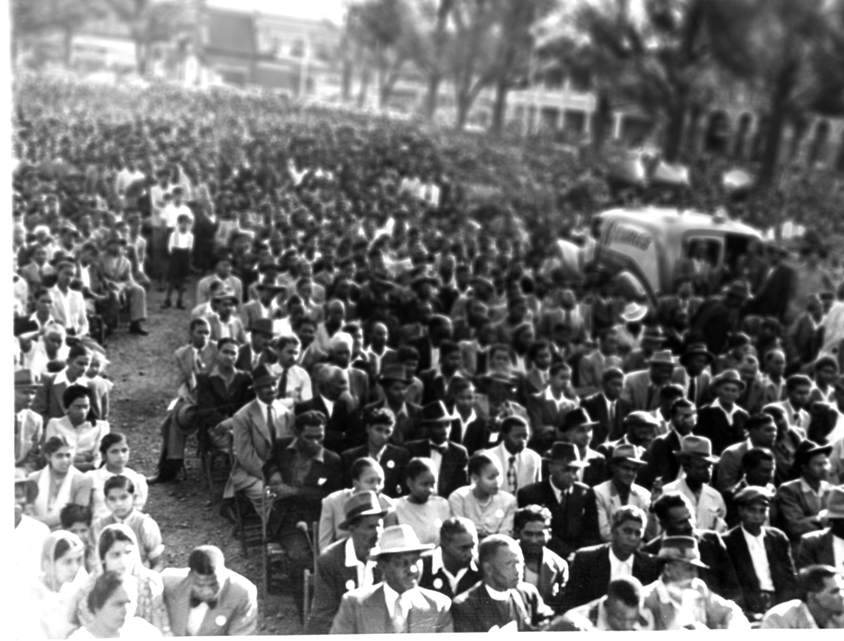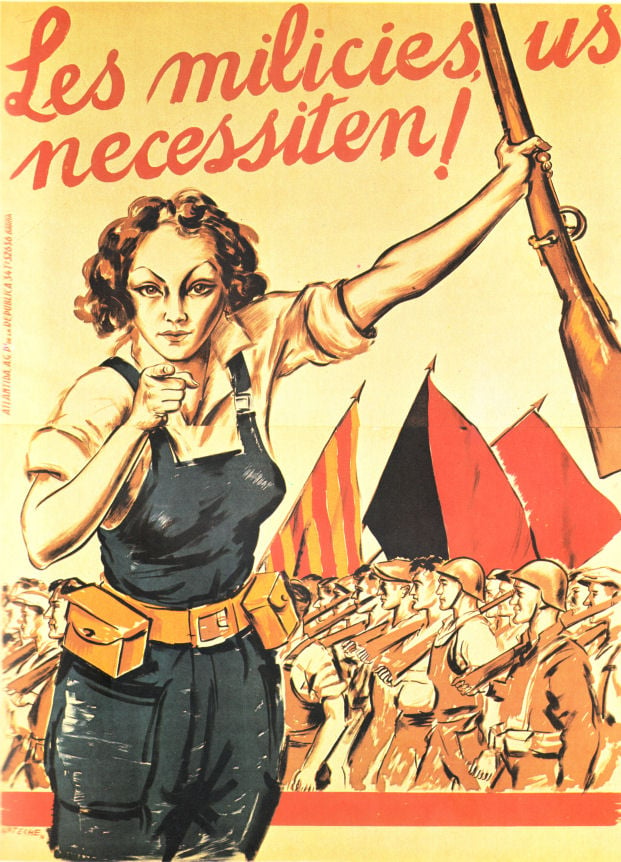Suppression of Communism Act (1950)
dl. de jul. 17, 1950

Image: More than 20,000 black, Indian, and coloured South Africans gather in Durban on May 28th, 1950 to protest the Group Area and Suppression of Communism bills. [Wikipedia]
On this day in 1950, the Suppression of Communism Act became law in South Africa, banning the anti-apartheid Communist Party and later playing a key role in the arrests of activists like Nelson Mandela and Walter Sisulu.
The law took place in the context of increasing organization against apartheid by the African National Congress (ANC). The ANC Youth League, founded in 1944 by Anton Lembede, brought in a new generation committed to direct action and civil disobedience. In 1946, the ANC had also allied with the South African Communist Party in assisting in the formation of the South African Mine Workers’ Union.
The Suppression of Communism Act was protested; more than 20,000 black, Indian, and coloured South Africans gathered in Durban on May 28th, 1950 to protest the bill (shown).
Although the act ostensibly banned “communism”, the law defined communism so broadly that it could effectively be used against anyone who opposed government policy, apartheid in particular. Defendants prosecuted under the law were frequently convicted of “statutory communism”, something Justice Frans Rumpff, presiding in a trial of ANC leaders, noted has “nothing to do with communism as it is commonly known.”
One notable example of political suppression using this law was the 1956 “Treason Trial” in Johannesburg, in which 156 people, including Nelson Mandela, were arrested and accused of treason.
Although all defendants of the Treason Trial were found not guilty, Mandela himself, along with figures such as Walter Sisulu and Govan Mbek, was sentenced to life in prison in the Rivonia Trial of 1963.
- Date: 1950-07-17
- Learn More: en.wikipedia.org, psimg.jstor.org.
- Tags: #Communism, #Civil Rights, #Protests.
- Source: www.apeoplescalendar.org

